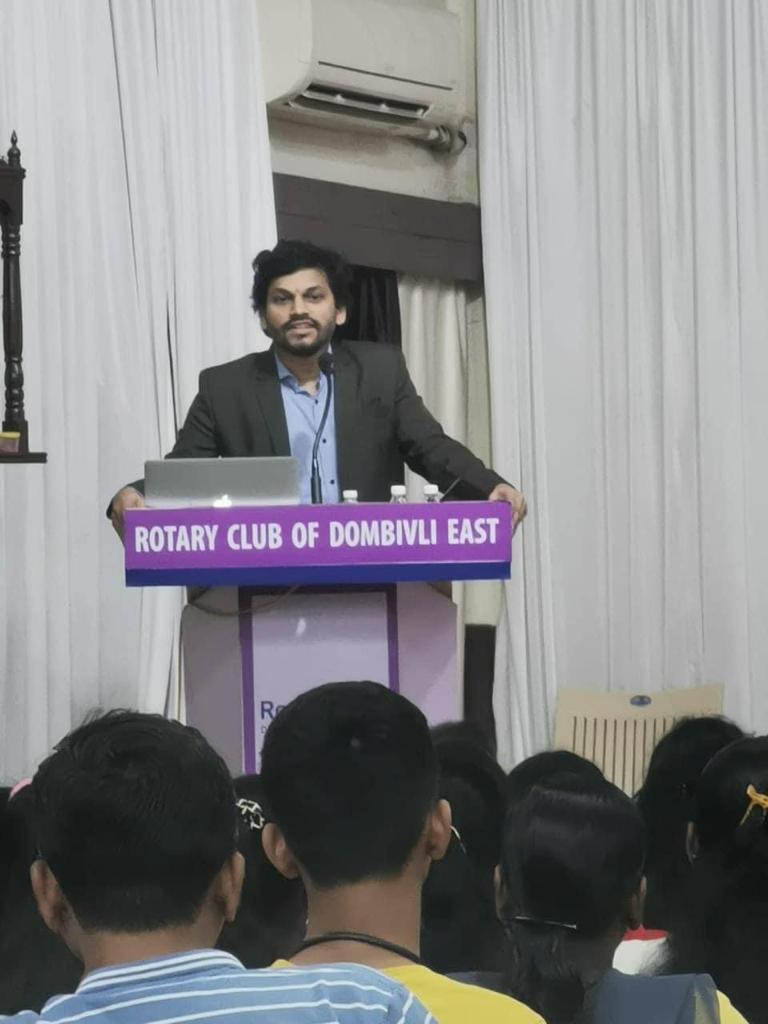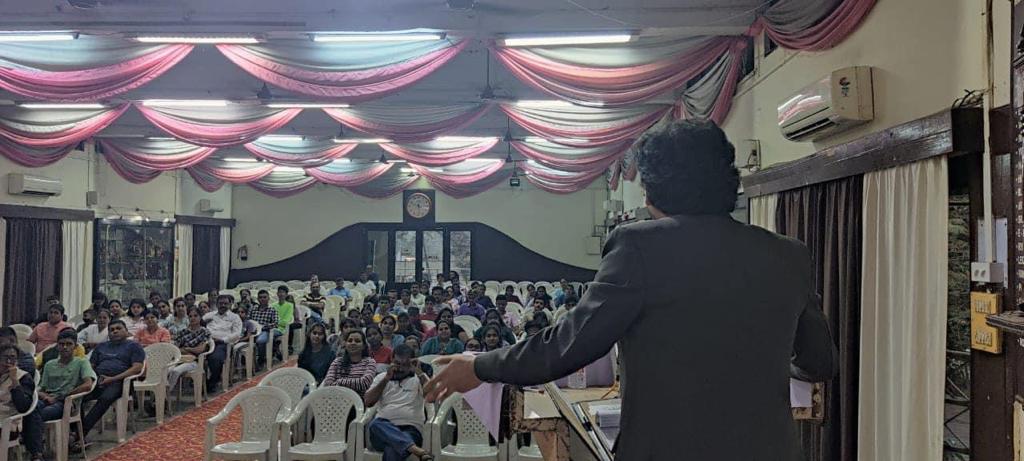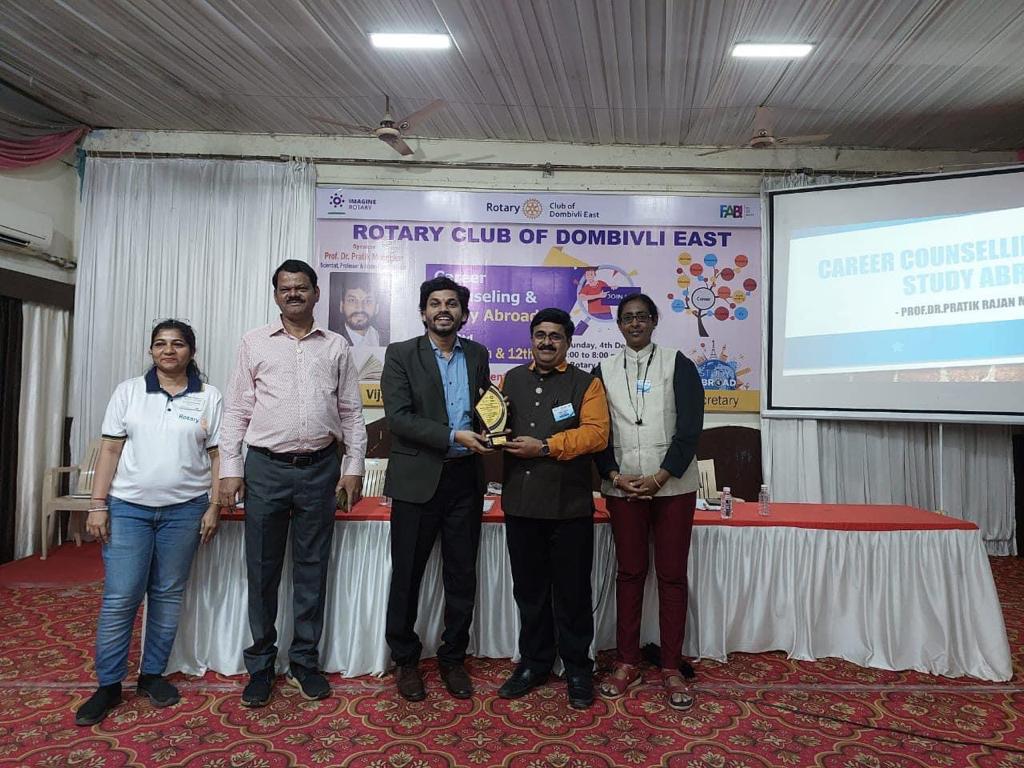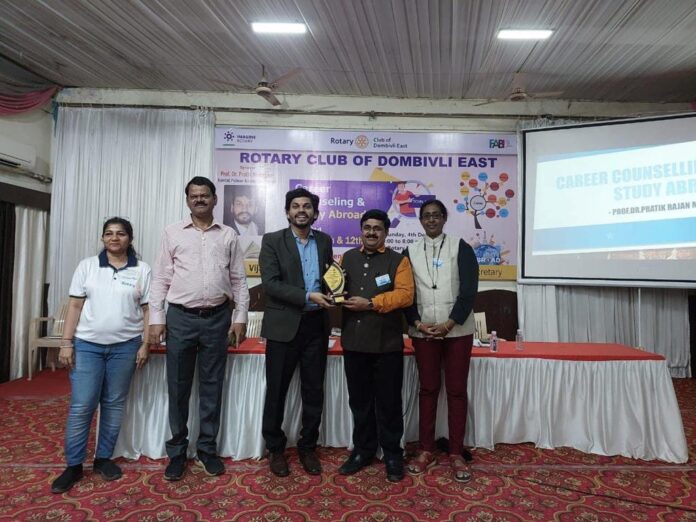#onamissiontohelpstudents
On 4th December Dr.Pratik gave his Career Guidance and Study Abroad lecture hosted by the Rotary Club of Dombivli.
Notwithstanding Sunday evening, over 200 students and parents attended the session.
The workplace is undergoing constant change. People used to likely pick one career and continue with it for the rest of their life, advancing up the ladder with relationships that had distinct boundaries and were regimented. They might even work their entire working life for the same business.

Today, however, people frequently change professions and vocations, and they must deal with numerous changes in their places of employment.
The issue is that, for the most part, career counselling hasn’t changed to reflect these new circumstances. Traditional career counselling methods are still prevalent in underdeveloped nations. Young people who can afford such a service and are typically in their second-to-last or last year of secondary school contact a qualified career counsellor.
After completing a few interest and personality surveys, they are asked questions about their personal and family background. Additionally, they might be required to complete a series of aptitude tests, provide information about their study styles and attitudes, and then complete a series of questions regarding their job interests.

This strategy is generally no longer effective in a world that is changing quickly. I participate in numerous research projects, task teams, and advising roles, and the general issue is the same everywhere: dangerously high tertiary dropout rates are associated in part with unsureness or career hesitation. Students frequently learn that the degree they have chosen is not what they are interested in, according to my research. They feel stuck and grow unclear about what they want to do for a living.
I think it’s time for developing nations to take a different, more respectful approach to career counselling based on my own study and the various techniques that have been successful in the developed world. Having interactions with students in which they share their stories rather than merely writing down responses to aptitude test questions is one strategy that we tested.

Research shows that encouraging people to share their stories in a career guidance setting has direct and positive results. It improves people’s work adaptability and work resilience. It makes them more employable. When people share their autobiography, it helps them identify the most important issues in their lives and discover what drives and motivates them.
This type of approach has also been shown to increase the chances of people finding.
Social Media Links :
Facebook : https://www.facebook.com/Pratikmngkr7
Instagram : https://instagram.com/drpratikmungekar?igshid=YmMyMTA2M2Y=
LinkedIn : https://www.linkedin.com/in/pratik-mungekar-88a4821a7
Twitter : https://twitter.com/PratikMungekar3?t=icpVGRqj8k6RyxKycKQBlg&s=09
Contact No: +91-9769782051




